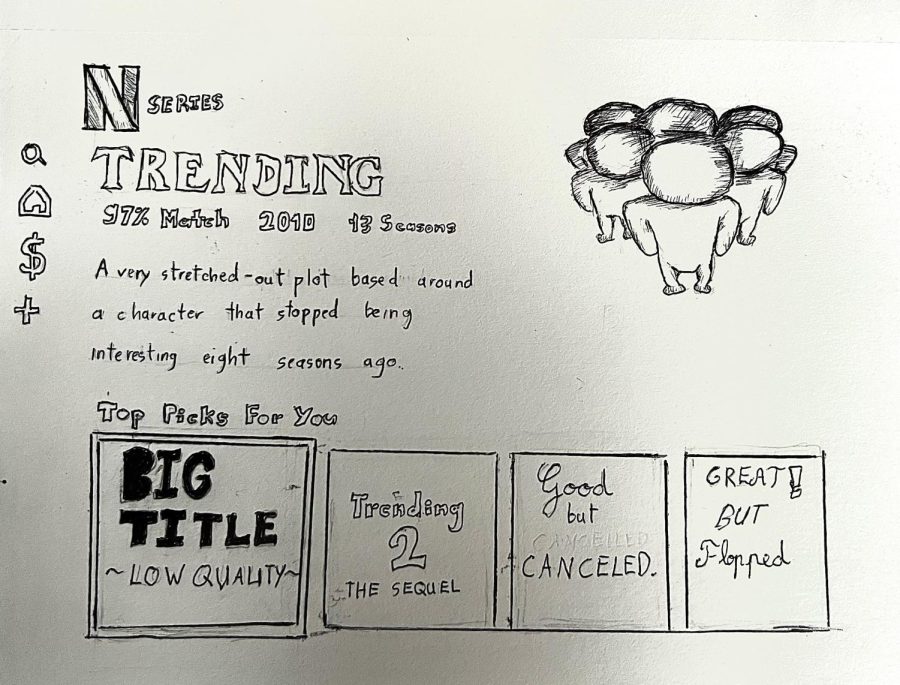Do Streaming Services Actually Care About Entertaining People?
May 8, 2023
Have you ever begun a show on Netflix, Hulu, or HBO Max; only to discover that it has over ten seasons, and you’ll never possibly be able to finish it? What about beginning a show, only to find out that it was canceled before the plot even really took off?
Streaming platforms offer hundreds of thousands of TV shows, most of which get canceled after the first season or two. This brings up a question: Are these platforms really using their budgets to provide us with the highest quality of entertainment, or are they simply valuing quantity over quality as they strive to make money?
Usually, the main reasons for canceling shows are low reviews or exponential decreases in viewership within the first month of the release date. Over the past few years, it has become quite apparent that many shows don’t have good outcomes. Perhaps, the production rates need to start slowing down so that the quality can start to increase.
Similarly, once guaranteed that they won’t get canceled, TV producers often drag out their shows to have as many seasons as possible, even when the popular cast is ready to move on. As Cecilia Prasanna ’26 told the Register Forum, “I got to season 11 of Grey’s Anatomy, and I knew one of my favorite characters was going to die, and I didn’t want to watch the show if [they] weren’t in it. The main reason I was watching it wasn’t because I enjoyed it, but just so I could finish the whole thing.” Weighing in at 19 seasons, Grey’s Anatomy is one of Netflix’s longest shows, and a prime example of how actor after actor left the franchise, character after character died, and the show just seems to keep running. Grey’s Anatomy was originally produced by ABC, before signing a deal with Netflix to air the show. Shows that have similar histories seem to have much lower cancellation rates than shows which are Netflix Originals, which often get canceled quickly.
Additionally, many streaming services don’t even formally cancel shows, they just suddenly stop offering them on their platform. Then, you need to go through the whole process of either parting ways with your favorite characters or finding another multi-billion dollar company to pay your earnings to each month. The ways in which these companies do their business with each other and with their clients are extremely crafty: they know that if their contracts expire and they stop offering a show, viewers need to find somewhere else to watch it, and their partner companies will start to make money.
So no, the executives of these huge entertainment companies likely don’t consider entertainment as their biggest priority. Instead, their focus is on the billions of dollars they are able to make every year. With this, we must start taking into account not only which streaming services we’re paying for, but also which TV shows we’re watching and why we’re watching them. If not, we’ll just keep continuing to pay over $300/month for platforms that don’t provide subscribers with high-quality entertainment.
This article also appears in our March 2023 print edition.










